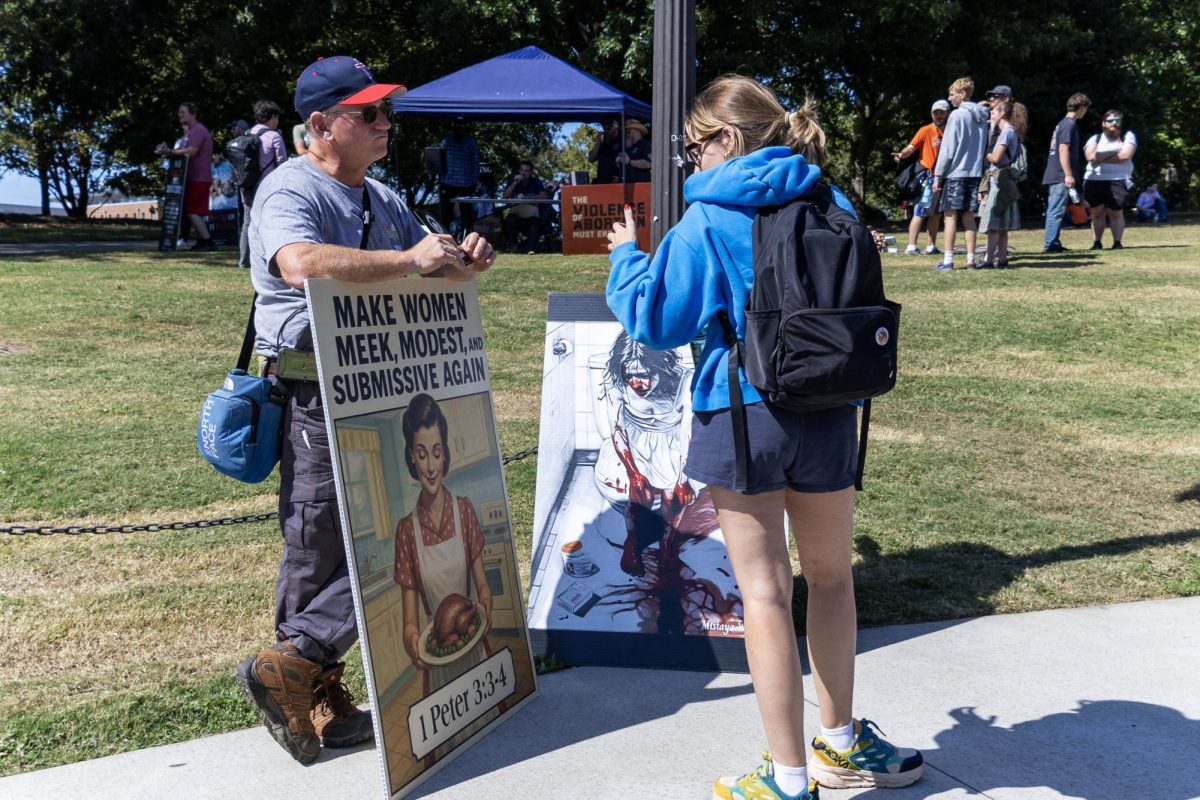Come fall 2025, Clemson students can expect to see a $300 mandatory athletics fee added to their tuition bill following the Clemson Board of Trustees Finance and Facilities Committee’s approval of the proposal at their fall quarterly meeting on Oct. 18.
The fee will be divided into two payments of $150 each semester, to be used “solely for athletic operations expenses directly associated with student-athlete services and student experiences,” according to Graham Neff, Clemson’s athletic director, in a presentation to the board.
Currently, Clemson students can attend all sporting events for free, with the exception of football, in which students can win tickets for up to four home games through the single-ticket lottery system. While implementing the athletics fee will not change this, Clemson is expected to generate between $7 and $8 million in revenue, according to the Associated Press.
During the meeting, Neff clarified that the revenue generated from this fee would not go towards name, image and likeness (NIL) initiatives but would help to counteract rising competition costs in revenue-generating sports such as college football and basketball alongside helping maintain athletics spaces on campus, according to Sports Illustrated and an official statement released by the University.
“The first pillar of the University’s strategic plan, Clemson Elevate, highlights the overarching goal to provide the Nation’s #1 Student Experience,” Joe Galbraith, associate vice president of communications, told The Tiger.
“Athletics plays an important role in that experience, not only from intercollegiate athletics successes but also through the maintenance of intramural fields and access to athletics facilities for major events,” said Galbraith.
Reactions to the athletics fee have been mixed thus far, with some emphasizing that students already give significant financial contributions to Clemson athletics programs.
“I just think it’s a little unfair that we are now being forced to pay an athletics fee because we already pay for football tickets,” Mackenzie Trame, a junior management major, told The Tiger.
However, some recognize that paying the fee will be their own way of leaving their mark at the University.
“Part of being a Clemson student is immersing yourself in the Clemson experience, and a big part of that is the athletics department, so I am all for whatever part we can play to better that experience,” Carson Davis, a sophomore communication major, told The Tiger.
Until recently, Clemson was the only Division 1 public university in South Carolina that refrained from charging students an athletics fee. Coastal Carolina University in Conway requires students to pay an annual subsidy of $2,090, while the University of South Carolina in Columbia charges an optional $86 athletics fee, according to Sports Illustrated.
Additionally, Clemson University is one of few Power 4 schools nationwide that has not required students to either purchase student tickets or pay some sort of fee, according to Neff. Clemson has considered implementing similar fees in the past but resisted due to public pushback.
While all eight members of the Finance and Facilities committee approved the athletics fee, trustees Nikki Haley, Bob Peeler and Louis B. Lynn voted against the proposal during the full board meeting.










Geoff Gilson • Oct 25, 2024 at 12:52 pm
Whether to have an athletics fee or not is open to debate. What is not open to debate is that student government, representing students, had no meaningful input to the decision at the BoT meeting — because student government still has no representation on the BoT. Other public colleges in SC may have athletic fees — they also have student representation on their BoT’s. Personally, rather than increasing student fees to raise $7 million for athletes, I’d rather a rich university like Clemson, with a turnover of $2.1 billion, allocate the same money to elevating the student experience with higher stipends, a better Redfern, and more counseling. This is unlikely to happen. Why? You got it. Student government is not in the BoT room when those decisions are being made. The advocacy continues.